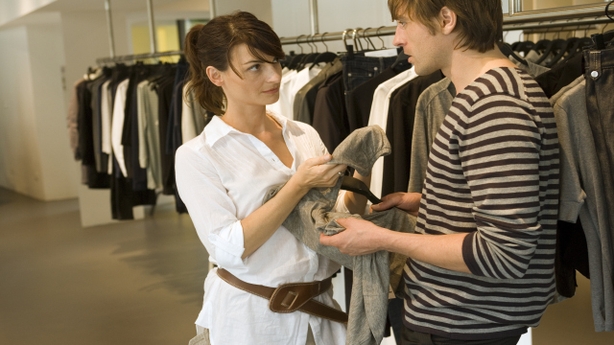Clothing retailer Next said today that trading prospects would be tough next year after reporting another dip in quarterly sales.
This has forced the company to rely on further cost savings to maintain its full-year profit forecast.
Next's chief executive Simon Wolfson said Britain's consumer climate was likely to remain difficult as inflation rises and real earnings are likely to be squeezed.
"The macro economic backdrop doesn't look exciting," Wolfson, a Conservative Party member of Britain's upper house of parliament and a supporter of Brexit, told Reuters.
"It is likely we will have another year (with) a difficult consumer environment," he added.
Next trades from about 540 shops in Britain and Ireland, as well as from franchised stores overseas and online.
It warned in March that 2016 could be its toughest year since 2008 and its shares have fallen by a third this year.
Wolfson said underlying demand for clothing has been weak since October 2015, when he identified a cyclical move away from spending on apparel back into areas that suffered the most during the economic downturn, such as eating out and travel.
A warmer than usual September also dented Next's full-price sales for its third quarter to October 31 which fell 3.5%.
That compared with analysts' forecasts of down 1.5 to 4.5% and a second-quarter rise of 0.3%.
Next forecast full price sales for its year to January 2017 in a range of down 1.75% to up 1.25% compared to previous guidance of down 2.5% to up 2.5%.
The mid-point of Next's new sales guidance was marginally lower than previous guidance.
But it said £6m of new cost savings, mainly from warehouse efficiencies, meant its central profit forecast for 2016-17 remained unchanged at £805m. It made £821m in 2015-16.
That forecast and Next reporting a return to sales growth in October as comparative weeks last year were less challenging sent its shares as much as 5% higher.

Wolfson reiterated that in a "worst case scenario" cost prices on like-for-like garments would rise by up to 5% in 2017 due to the fall in the pound since June's vote by Britain to leave the EU.
Next's investment plans were unchanged by the vote.
"If anything the market for new stores has got slightly softer since Brexit - it’s actually helping the supply of new space for the new year," he said.
The CEO said talk of a "hard Brexit" that would see immigration controls take priority over membership of the EU's single market was unhelpful.
“It all comes down to whether we want to build an open economy or a closed one," he said.
"If the government chooses to build an open economy with a positive approach to trade and towards investment and economically productive immigration then I think we’ve got every chance of making an enormous success of it. The important thing is the attitude with which they go into the negotiations on those things," he added.

